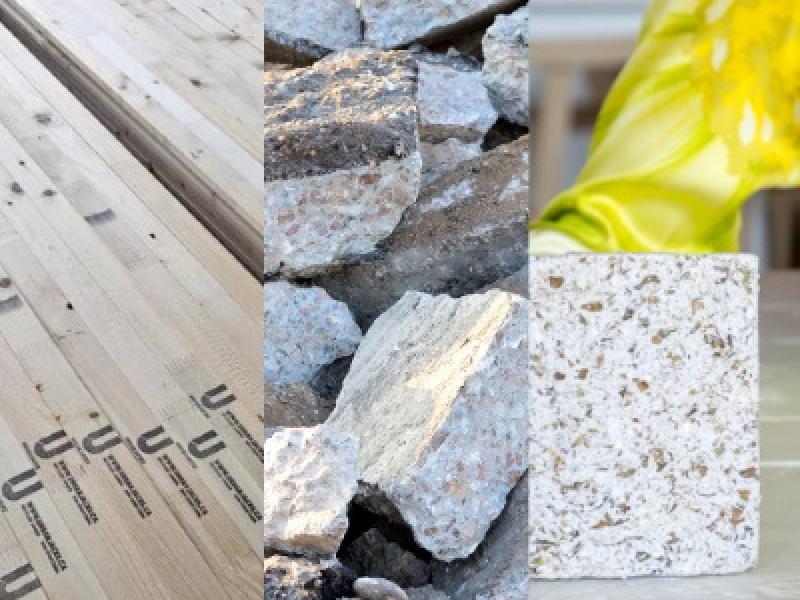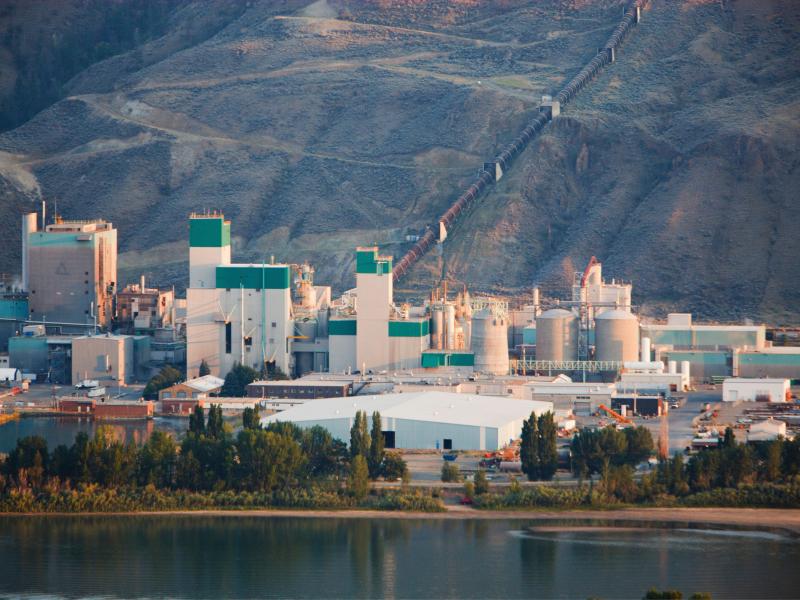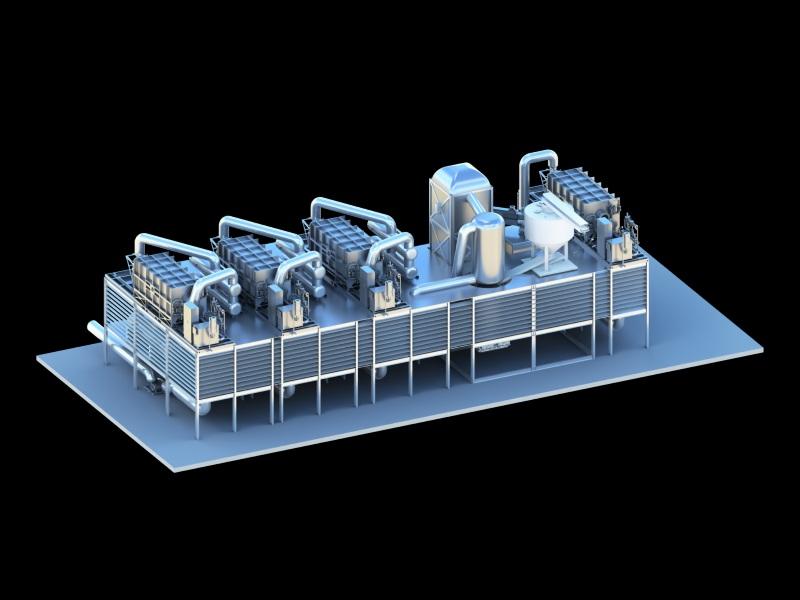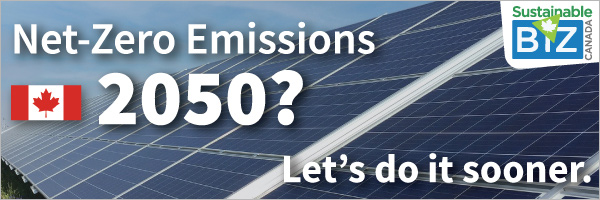Recent Articles
Paved with good intentions: Building greener streets
Paved with good intentions: Building greener streets
To reduce emissions and build greener streets and highways, the focus should be on the materials used to construct the infrastructure rather than what’s driven on them. Highways and roads are constructed from carbon-intensive materials like bitumen, aggregate and cement.
Volvo’s plan to drive the green steel market
• GreenBiz
Volvo plans to manufacture its cars with fossil-free steel by 2026. The carmaker signed a statement of intent with Nordic steelmaker SSAB last month to commercialize a process to produce steel using green hydrogen instead of coal.
Couche-Tard envisions a Circle K in every driveway
The Alimentation Couche-Tard convenience store chain, which owns the Circle K brand, claims to be the most recognizable charging-station brand in Norway, a country that has been one of the fastest adopters of electric vehicles in the world.
Halifax to get 60 electric buses as part of $112M deal
• CBC • Halifax Today
Halifax Regional Municipality will get 60 battery-powered electric buses as part of a $112-million agreement with the provincial and federal governments. “Our plan is to have a totally electric fleet by 2028,” Halifax mayor Mike Savage told reporters following the announcement.
Canada investing $440M in green aerospace projects
Canada is ready to invest up to $440 million (US$349 million) in three aerospace companies in the province of Quebec, Prime Minister Justin Trudeau said on Thursday in a boost to the hard-hit sector ahead of an expected fall federal election.
Airbus joins Quebec efforts on sustainable aviation fuel
Airbus SAS is joining an effort by Quebec aerospace companies and research institutions to bring sustainable aviation fuel to market as the air travel industry plots ways to reduce its emissions amid a persistent environmental backlash.
Flight-shaming movement inspires flight-free travel
Aviation emissions have doubled since the mid-1980s, growing along with the tourism industry. But it wasn’t until teenage climate activist Greta Thunberg popularized the flygskam (flight shaming) movement in 2019 that public sentiment in staying grounded went mainstream.
Canadian renewable energy deals break records in 2021
• Pembina
Renewable energy’s moment has arrived in Canada, and Alberta is reaping many of the benefits. The Business Renewables Centre launched its inaugural Deal Tracker, Canada’s first public record of corporate procurement of renewable energy. Deals announced in 2021 surpassed previous years.
Canada’s buildings must be restored no later than 2050
Canada needs the equivalent of a war-time mobilization to ensure that all buildings are refurbished no later than 2050 as part of our effort to hit net-zero emission goals, a new report from Efficiency Canada concludes.
Honeywell and Nexii partner to save energy costs
Nexii Building Solutions, a green construction technology company, has named Honeywell as the exclusive building technologies supplier for new buildings; the strategic alliance will help Nexii construct buildings with reduced environmental impact, including energy savings and operational efficiencies.
Yorkdale 1st Canadian retail centre to earn GBAC STAR
Toronto’s Yorkdale Shopping Centre has become the first retail centre in Canada to achieve GBAC STAR Facility Accreditation from the Global Biorisk Advisory Council. Yorkdale’s certification reflects the health and safety measures it put in place to keep occupants safe.
Smart building automation software leaps through 2027
A report shows that smart building automation software and systems will reach $20.5 billion in North America by 2027. Buildings are an integral part of a city’s ecosystem, and intelligent buildings lead to the improved safety and wellbeing of its occupants.
Report: Smart surfaces reduce impacts of climate change
A new report released by the Smart Surfaces Coalition shows cities can cool down heat waves, reduce severe rainfall and slow climate change by deploying smart surfaces, which are reflective, porous and green surfaces, solar photovoltaics and trees.
REALPAC methodologies measure energy, water use
The REALPAC normalized energy-use intensity and normalized water-use intensity methodologies were developed to support benchmarking efforts that the Canadian commercial real estate organization sponsored last decade. These methodologies gauge energy- and water-use and are available for building owners and managers.
Burlington-based Anaergia aims to build a better planet
Recently listed on the Toronto Stock Exchange, Anaergia Inc. is a Burlington, Ontario-based company that converts organic waste into clean water, fertilizer and renewable natural gas. It has operations worldwide, including Toronto, new patents, and a variety of proprietary technology.
Net-zero: What collective climate action looks like
Transform to Net-Zero is made up of consumer goods companies – including Mercedes-Benz, Microsoft and Starbucks – that are climate leaders in their industries. This collective experience and reach across sectors and value chains uniquely positions the coalition to drive large-scale change.
BlackRock’s green ETFs support carbon transition
When the world’s largest investment house, BlackRock, unveiled its U.S. Carbon Transition Readiness ETF, investors had already poured US$1.25 billion into it, making it the largest ESG-aligned ETF launch to date and the biggest launch in the ETF industry’s history.
How the EU plans to pave its road to net-zero
European Commission President Ursula von der Leyen unveiled a policy package designed to accelerate decarbonization efforts and invest billions of Euros in green infrastructure. The policies will help the EU achieve its goal of cutting emissions by 55 per cent by 2030.
Greenland suspends its 50-year oil exploration strategy
• Globe and Mail • CBC • The Energy Mix
Greenland has ended its 50-year ambition to become an oil producing nation after announcing it would suspend a strategy of searching for oil and stop granting exploration licenses. Oil exploration has occurred since the 1970s, involving companies such as Shell.
Big Oil companies are dumping dirty assets
The conventional wisdom is that 100 companies are responsible for 71 per cent of carbon emissions. The Guardian article that started this noted that “ExxonMobil, Shell, BP and Chevron are identified as being among the highest emitting investor-owned companies since 1988.”
 Industry Events
Industry Events
-
ECO IMPACT 2026
Feb 19 2026
to Feb 20 2026
The Westin Calgary
-
BuildGreen Atlantic
Apr 27 2026
to Apr 28 2026
Halifax, NS
-
The Evergreen Conference
May 06 2026
to May 07 2026
Toronto, ON
-
Building Lasting Change
Jun 17 2026
to Jun 19 2026
Montréal, QC
-
Retrofit Canada Conference
Jun 24 2026
to Jun 25 2026
Halifax Convention Center











